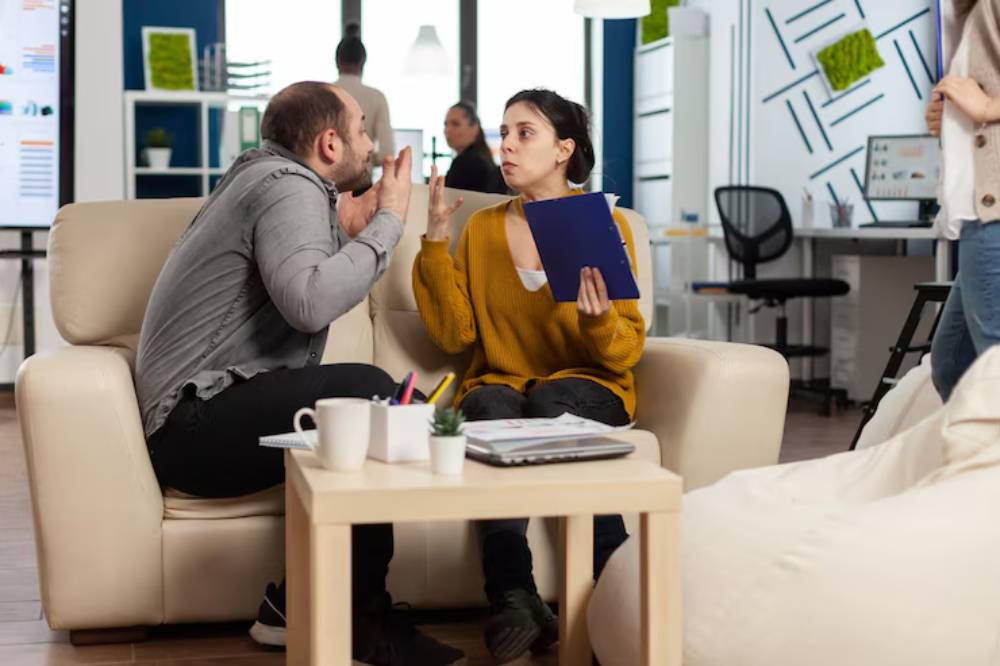The Health & Wellness Blog

Navigating Conflict with Mindfulness and Empathy
In the intricate dance of human relationships, conflict is an inevitable partner. Conflict can happen in any relationship. It might be a disagreement with a colleague, a misunderstanding with a friend, or a fight with a loved one. How we handle these conflicts can greatly affect the health and length of our relationships. Mindfulness and empathy can turn conflict from a negative force into a chance for growth and stronger connections.
The Importance of Mindful Conflict Resolution
Conflict resolution is a critical skill in maintaining healthy relationships. When handled mindfully, conflicts can lead to greater understanding and stronger bonds. Mindful conflict resolution involves being present, aware, and intentional in our interactions. It requires us to pause, reflect, and respond rather than react impulsively. This approach helps calm tense situations. It also creates an environment where everyone feels heard and respected.
Empathy plays a crucial role in this process. By putting ourselves in others’ shoes, we can better understand their perspectives and emotions. This understanding can close gaps and break down barriers. It leads to meaningful talks and solutions. Empathy, coupled with mindful communication, ensures that our interactions are compassionate and constructive.
Why Mindfulness and Empathy Matter

Enhancing Emotional Intelligence
Mindfulness and empathy are essential parts of emotional intelligence. This means we can recognise, understand, and manage our emotions. It also helps us tune into the feelings of others. High emotional intelligence helps people resolve conflicts better. It allows them to handle disagreements calmly and clearly.
When we practice mindfulness, we become more aware of our emotional triggers and patterns. This awareness helps us pause. We can then choose our responses instead of just reacting automatically. Empathy helps us connect with others better. It builds respect and understanding between people.
Building Trust and Respect
Trust and respect are the cornerstones of any healthy relationship. Mindful communication means listening actively and responding thoughtfully. It shows respect for the other person’s point of view. When individuals feel respected, they are more likely to reciprocate with openness and honesty.
Empathy builds trust. It shows we truly care about others’ feelings and experiences. When people feel valued and understood, they are more open to talking and finding a solution.
Promoting Personal Growth
Conflicts, when navigated mindfully, can be powerful catalysts for personal growth. They challenge us to examine our beliefs, assumptions, and behaviours. By approaching conflicts with an open mind and heart, we can learn valuable lessons about ourselves and others.
Mindfulness encourages self-reflection and self-awareness, helping us identify areas for improvement. Empathy, on the other hand, broadens our perspective and deepens our understanding of the human experience. Together, they enable us to grow and evolve as individuals.
Additional Expert Tips & Common Mistakes to Avoid
Best Practices for Mindful Conflict Resolution
- Pause and Breathe: Before responding to a conflict, take a moment to pause and breathe. This simple practice can help calm your mind and body, allowing you to approach the situation with clarity and composure.
- Listen Actively: Practice active listening by giving the other person your full attention. Avoid interrupting or formulating your response while they are speaking. Instead, focus on understanding their perspective and emotions.
- Speak Clearly and Respectfully: Use “I” statements to share your feelings and needs. This way, you avoid blaming or accusing the other person. For example, say “I feel hurt when…” rather than “You always…”.
- Seek Common Ground: Look for areas of agreement and shared goals. Finding common ground can help shift the focus from conflict to collaboration.
- Practice Self-Compassion: Be kind to yourself as you navigate conflicts. Acknowledge that it’s normal to feel upset or frustrated, and give yourself permission to take breaks if needed.
Common Mistakes to Avoid
- Reacting Impulsively: Acting on impulse can escalate conflicts and damage relationships and friendships. Take the time to reflect before responding.
- Avoiding the Issue: Ignoring conflicts can lead to resentment and unresolved issues. Address conflicts directly and constructively.
- Blaming and Criticising: Blaming others can create defensiveness and hinder resolution. Focus on expressing your feelings and needs instead.
- Not Empathising: Ignoring the other person’s feelings can lead to distance and mistrust. Strive to understand and validate their experience.
Advanced Insights and Expert Recommendations

Cultivating a Mindful Communication Practice
Mindful communication is an ongoing practice that requires commitment and effort. Here are some advanced insights to help you deepen your practice:
- Practice Mindfulness Regularly: Add activities like meditation, yoga, or breathing exercises to your daily life. These practices can enhance your ability to stay present and centred during conflicts.
- Reflect on Past Conflicts: Take time to reflect on past conflicts and identify patterns or triggers. Use this insight to inform your approach to future conflicts.
- Build Empathy by Seeing Their Side: Try to put yourself in their shoes. Think about their background, experiences, and feelings. This helps you understand their point of view better.
- Seek Feedback and Support: Reach out to trusted friends, mentors, or therapists for feedback and support. They can offer valuable insights and guidance as you navigate conflicts.
Embracing Conflict as a Learning Opportunity

Conflicts are not just obstacles to overcome. They are opportunities for learning and growth. Embrace conflicts as valuable learning experiences by approaching them with curiosity and openness. Ask yourself what you can learn from the situation and how you can apply these lessons to improve your relationships.
Conclusion: Embracing Mindfulness and Empathy in Conflict
In conclusion, using mindfulness and empathy can transform our relationships. They also help us grow personally. Mindful communication and empathy can turn conflicts into opportunities. They help us understand each other better, build connections, and work as a team. As we embrace these practices, we build stronger, more resilient relationships that stand the test of time.
As you move forward, consider how you can incorporate mindfulness and empathy into your daily interactions. Reflect on past conflicts and identify areas for growth and improvement. The journey to mindful conflict resolution never ends. Each step you take helps you build more meaningful and fulfilling relationships.
What conflicts in your life could benefit from a mindful and empathetic approach? How can you apply the insights from this blog to enhance your relationships and personal growth? Embrace the challenge. Discover how mindfulness and empathy can transform conflict resolution.









